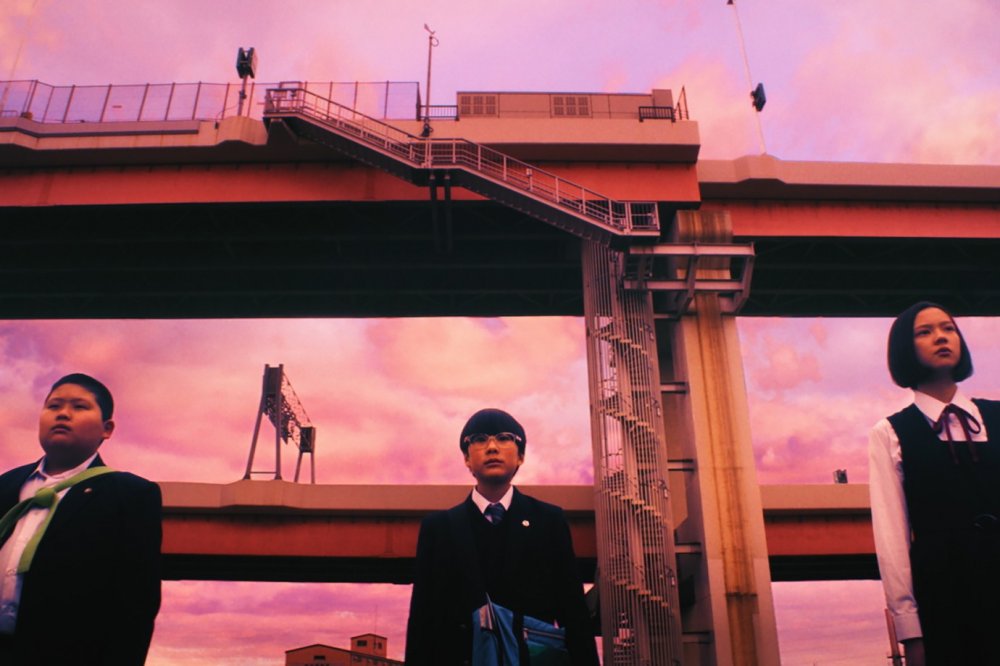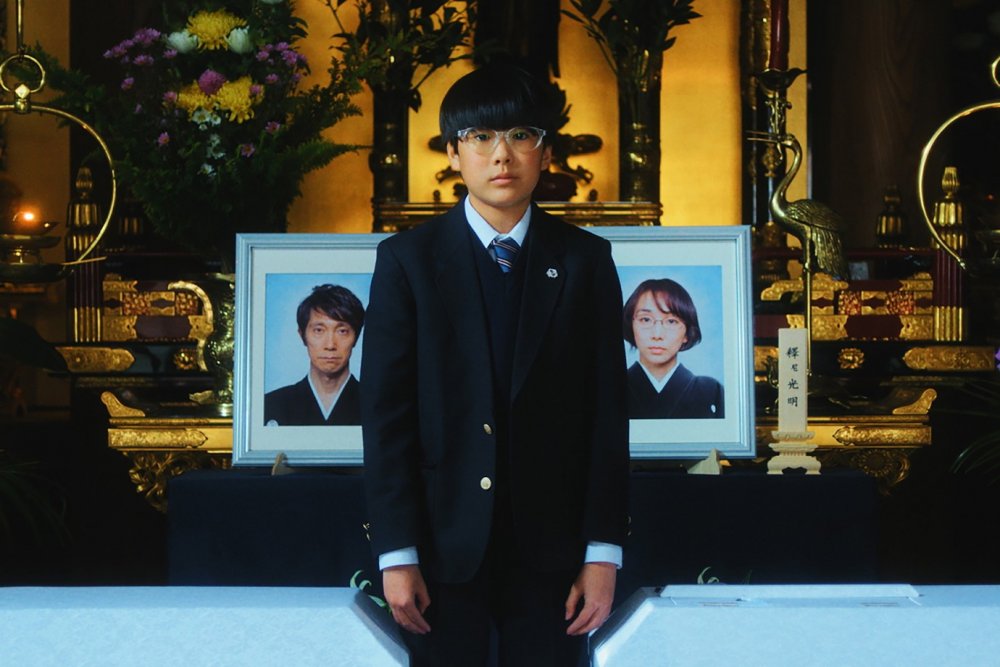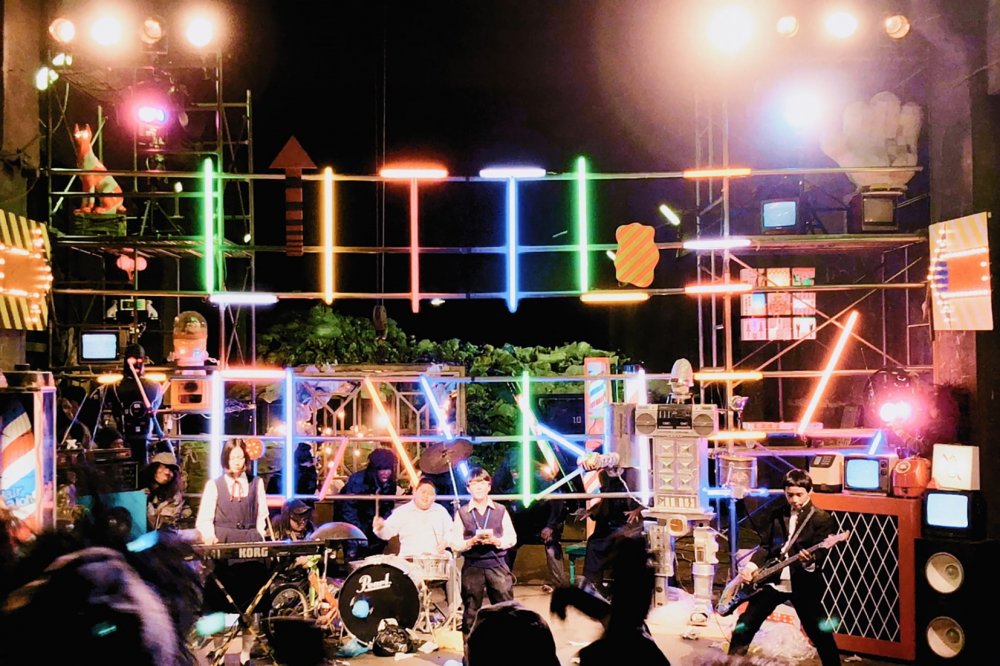Has Parmesan cheese ever been used as a signifier of death before? An orphaned teenage boy presents a lucid account of his woes, as he strips the tangy seasoning of flavour: there is no more hunger, satisfaction is worthless, the ochre sprinkles only convey what remains after life has been extinguished. To the lifeless adolescents of We Are Little Zombies, a deadpan Japanese rock comedy-cum-playground drama, what sits on top of a plate of bolognese bears no real difference to the ashes of a deceased mother that blow in the wind. Dust is dust.
Japan 2019
120 mins
Director Makoto Nagahisa
Cast
Hikari Takami Keita Ninomiya
Shinpachi Ishi Satoshi Mizuno
Yuki Takemura Mondo Okumura
Ikuko Ibu Sena Nakajima
This is a story about four school kids who meet at a funeral, and decide to form a rock band. All of their parents have died – car crash, house fire, suicide. A set-up that could give way to syrupy despair instead lays the groundwork for a simultaneously serious and kitsch tailspin of life beyond death, teenagehood that swaps emotion for electronic music. Pain, desire, and sadness don’t exist in a world that is lived with the mechanisms of a video game, without the grief that defines mourning in reality.
We Are Little Zombies is built like Pac-Man on steroids, like a Wes Anderson film experiencing an intense acid trip. The story is posited as a brand new coming-of-age drama, while borrows cinematic references from all the greats (Hitchcock dolly zooms high-five Scorsese voiceovers) so as to stimulate an audience that shouldn’t question what could possibly be going on inside the minds of such stony narrators.

Satoshi Mizuno as Shinpachi Ishi, Keita Ninomiya as Hikari Takami and Sena Nakajima as Ikuko Ibu
The journey builds to the birth of the ‘kick-ass band’, as a performance of the Little Zombies song (that shares the name of the film) cements the group’s star-beyond-the-grave identity. Rapturous crowds are encouraged to scream louder to cheer these expressionless artists up. They’re told it’s OK to cry while watching them. The juxtaposition of cause and effects (death and music) skips any kind of emotional reasoning, in favour of an all-out glorious performance of cacophonous entertainment.
Bright stars burn fast, though, as the blistering centrepiece is only delivered after a string of sketches with satellite characters that lack the deliciously perverse humour of the four teenagers. Like all good music movies, a rise is followed by a fall, which shapes the movie into something (if only slightly) more conventional. The timeline turns the film into a more complete work, albeit one that inevitably feels less exciting as the drugs start to wear off.

Keita Ninomiya
The self-aware narration holds the audience’s hand until the very end, as the zombies analyse their behaviour and circumstances by questioning each other and talking to us in turn – there’s no such thing as the fourth wall. The film triumphs as a piece of uninhibited chaos, as flashy entertainment without reason. Yet in all the madness, there is still a fascinating glimpse of death as a philosophical vehicle. In the Parmesan cheese as much as the ashes of a loved one, We Are Little Zombies comes to terms with the physical weight that mortality leaves behind.
-
The Digital Edition and Archive quick link
Log in here to your digital edition and archive subscription, take a look at the packages on offer and buy a subscription.









